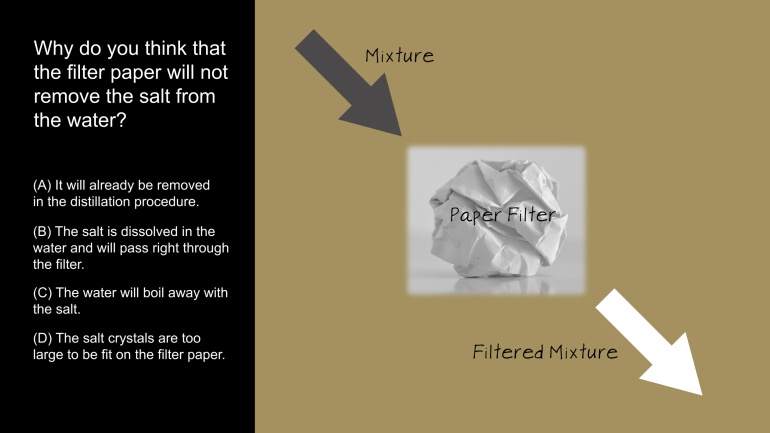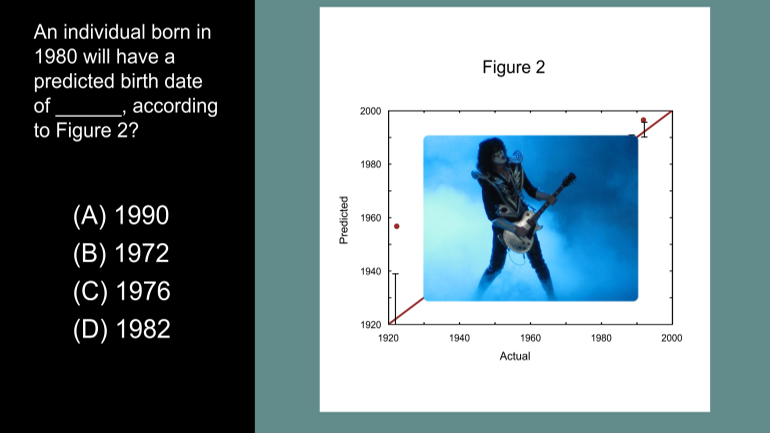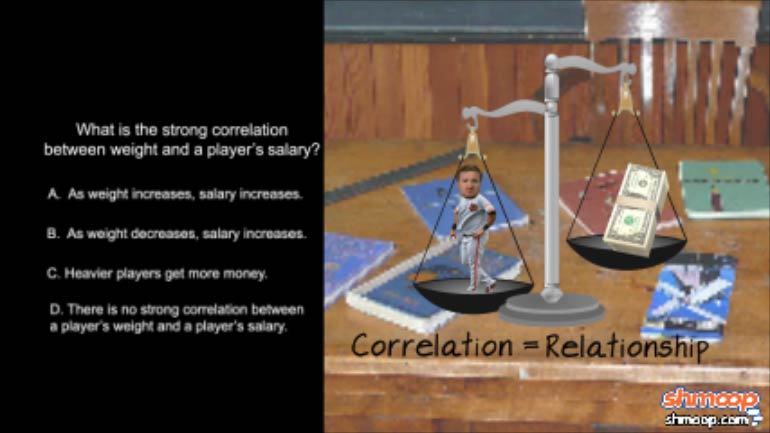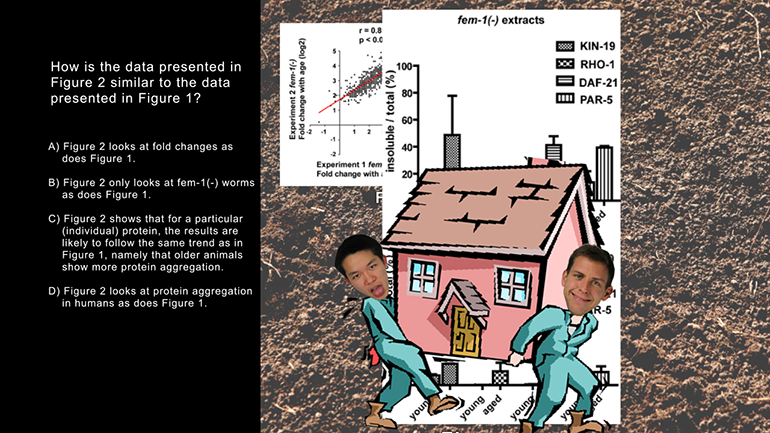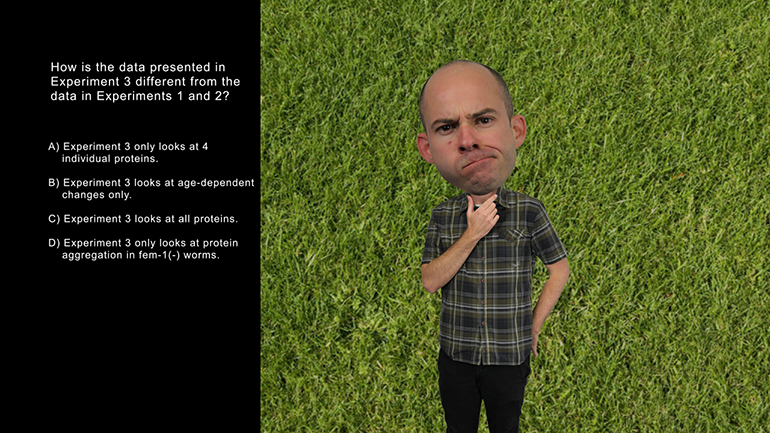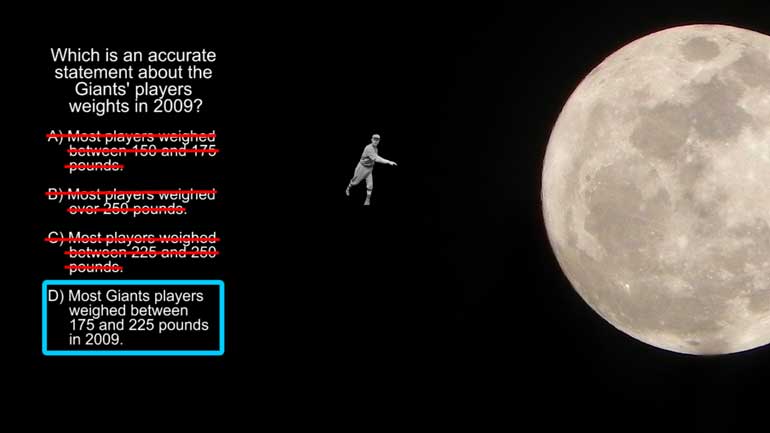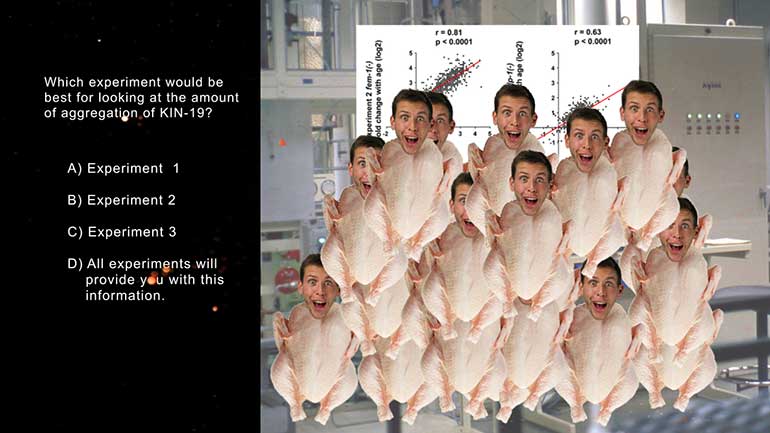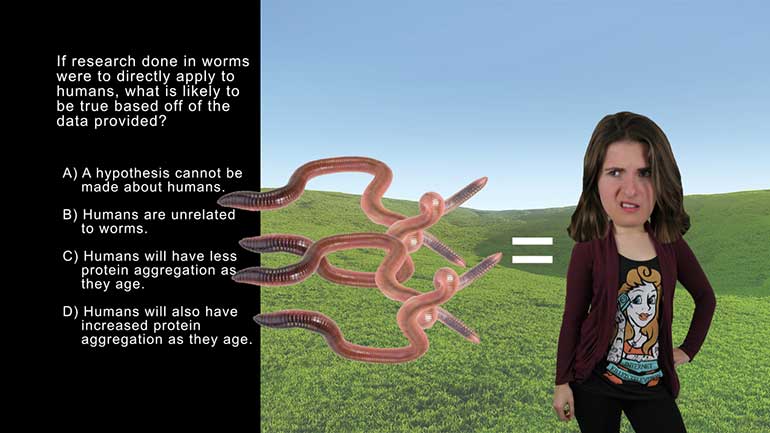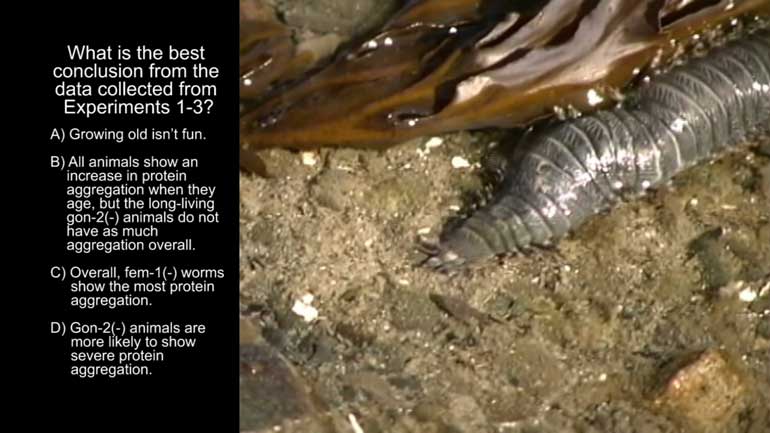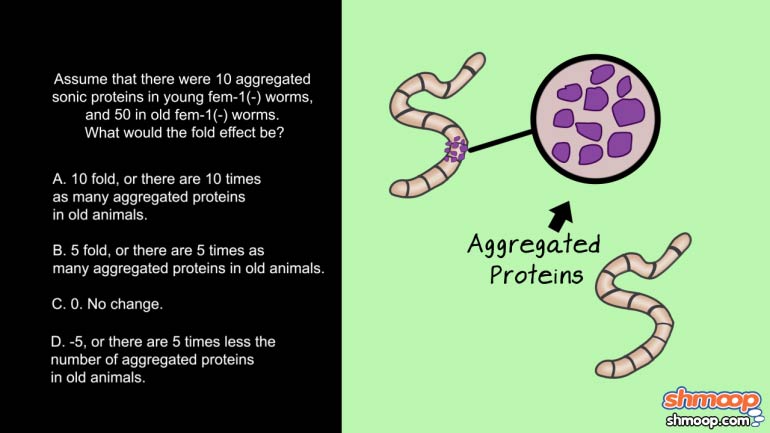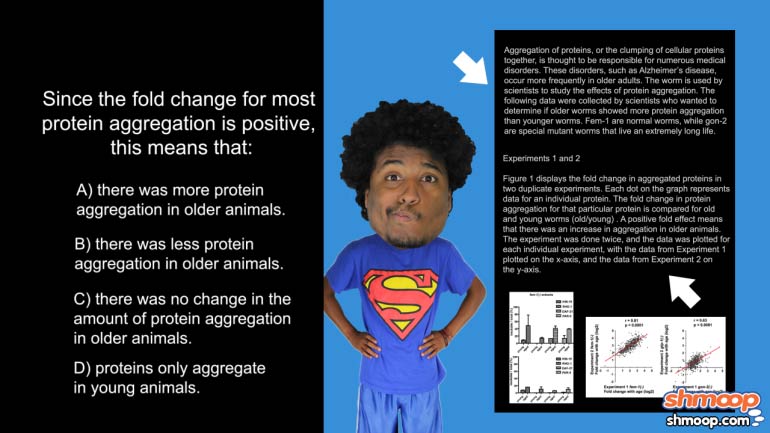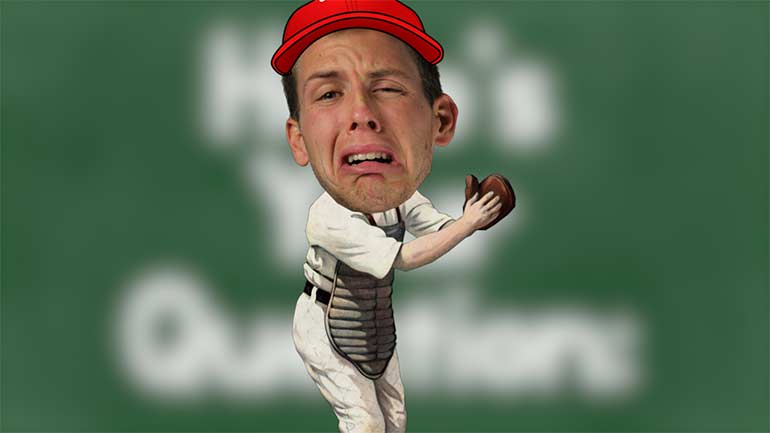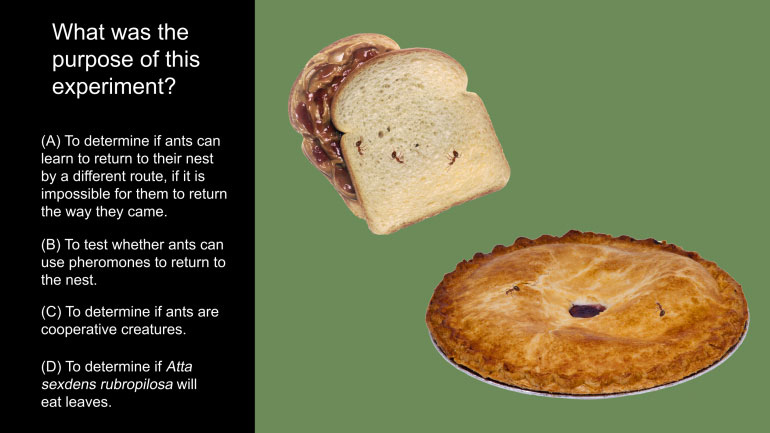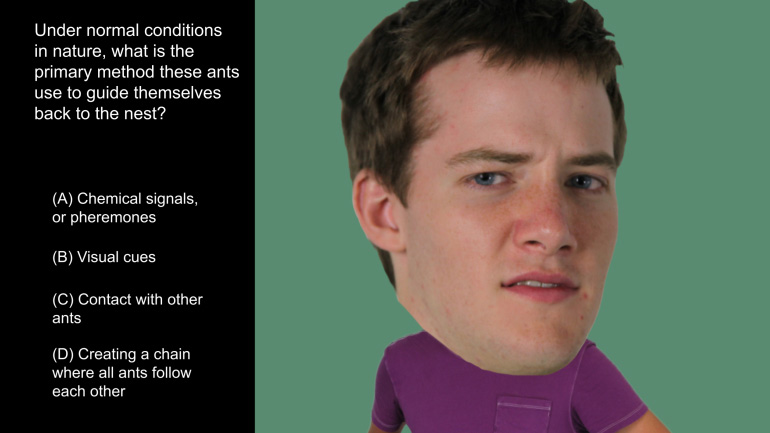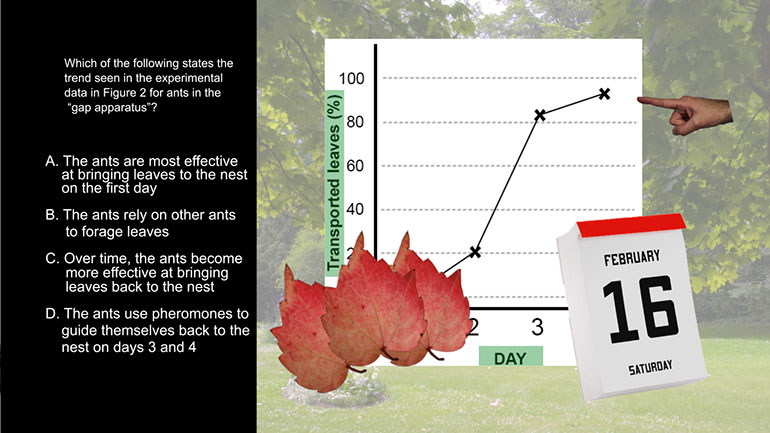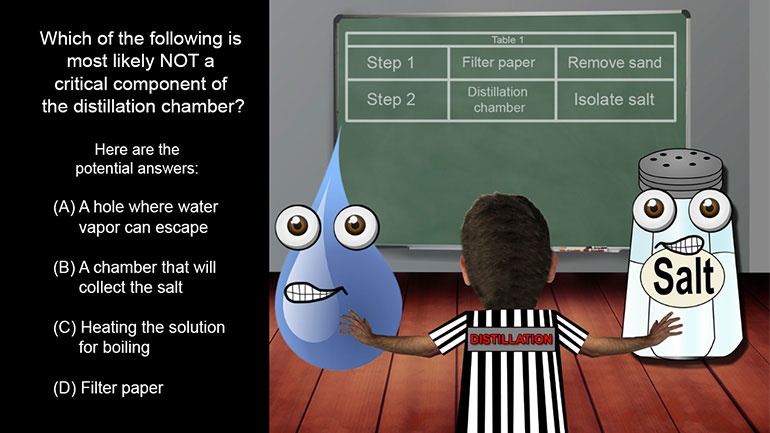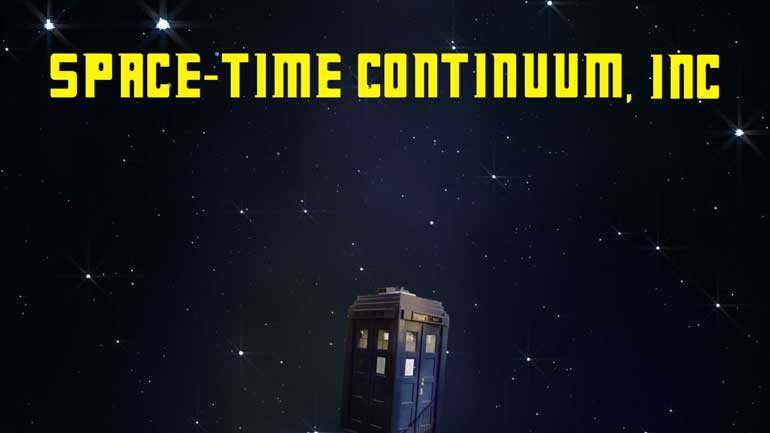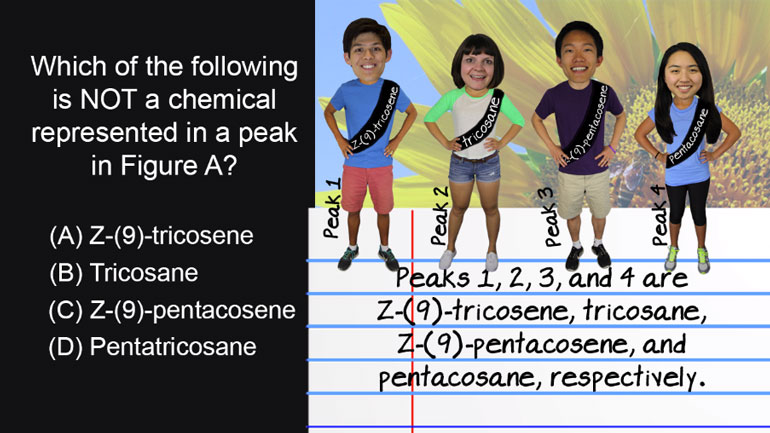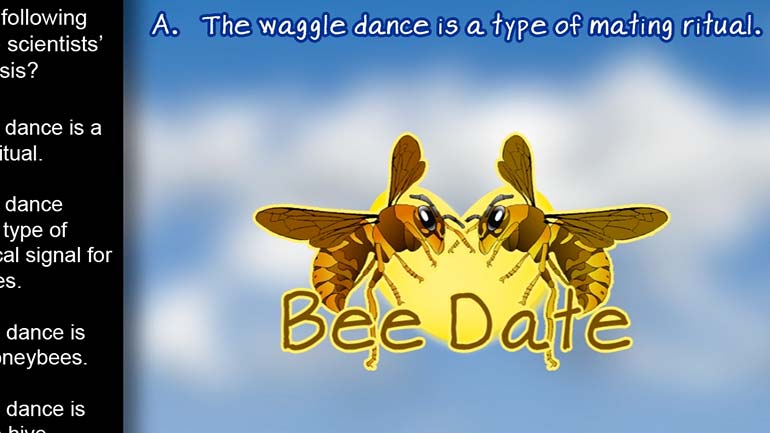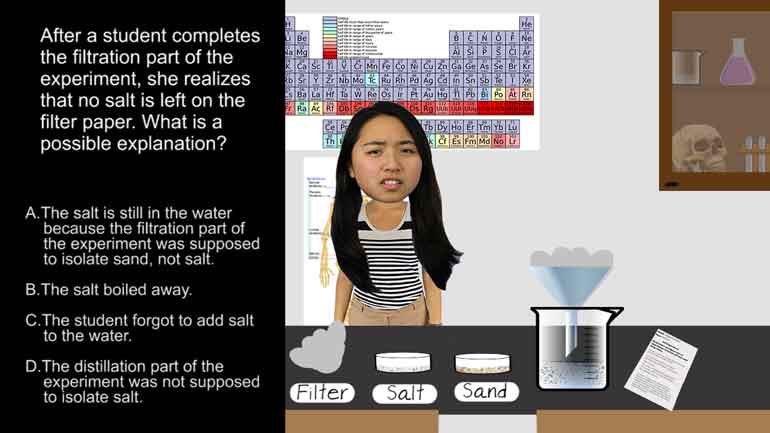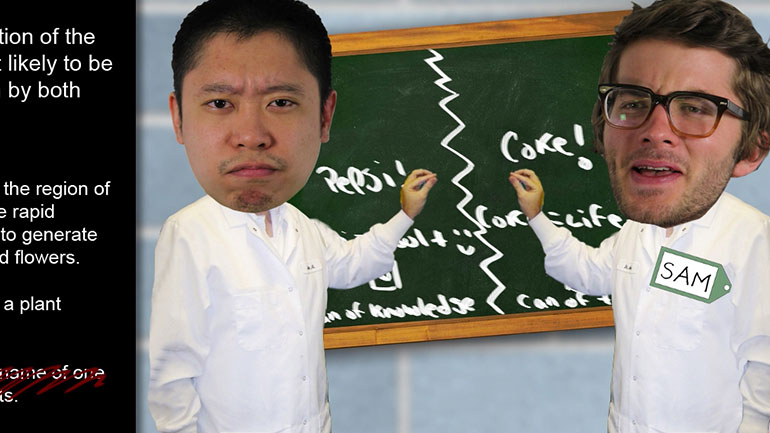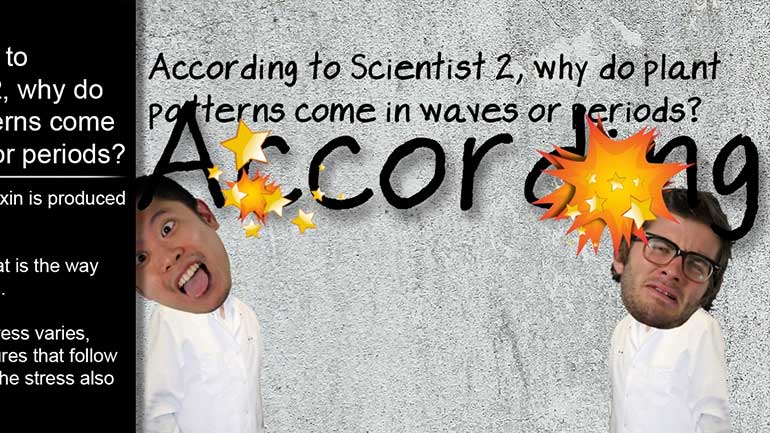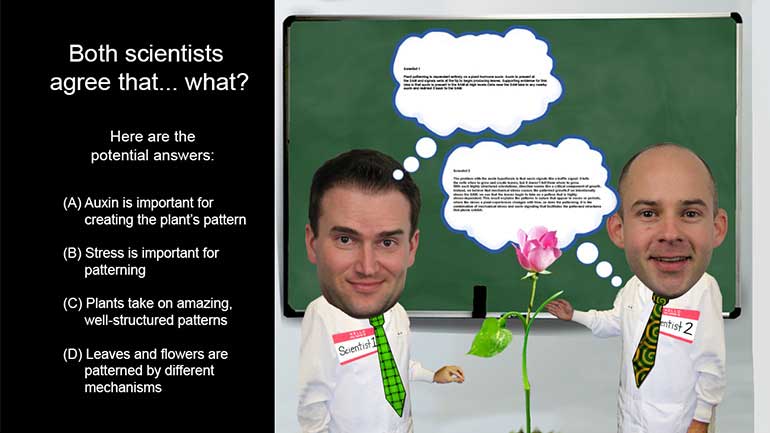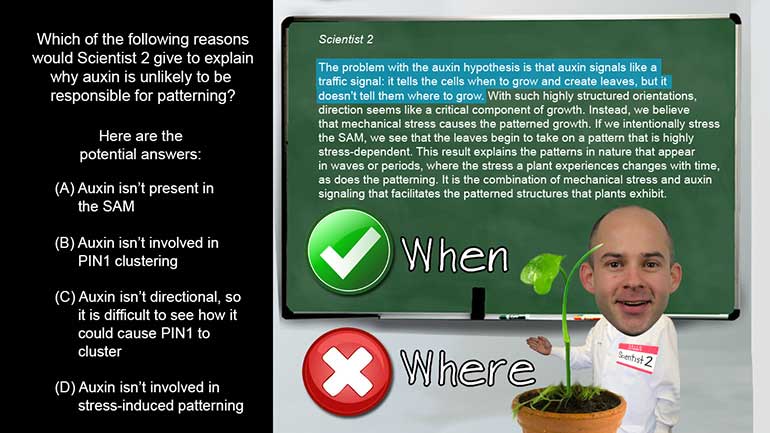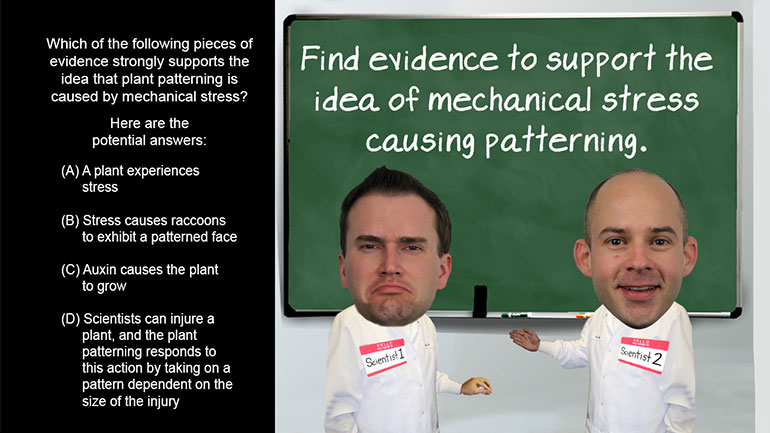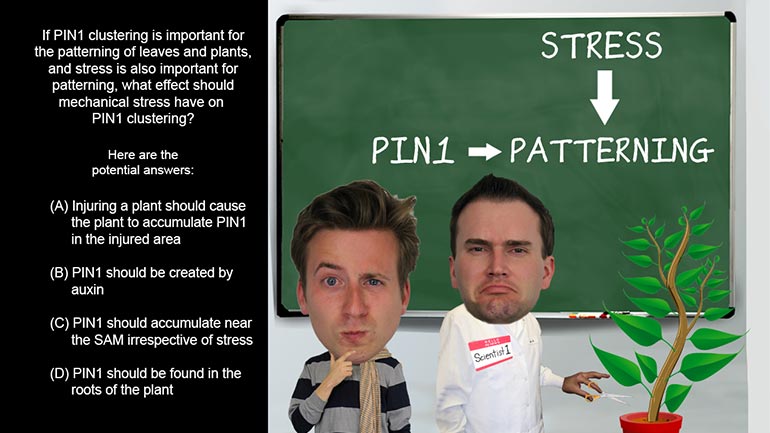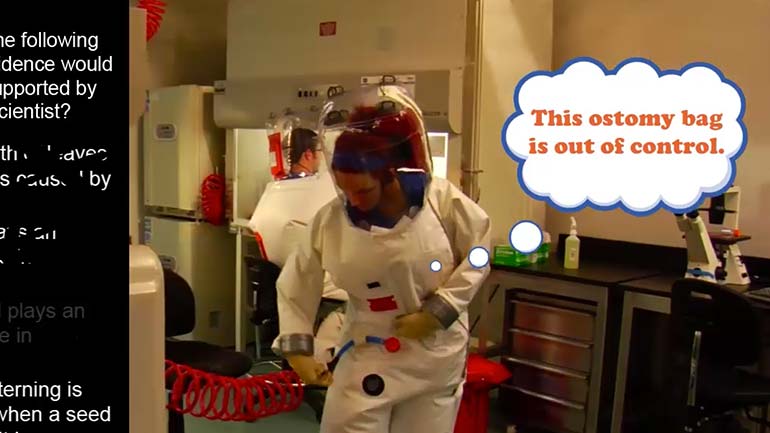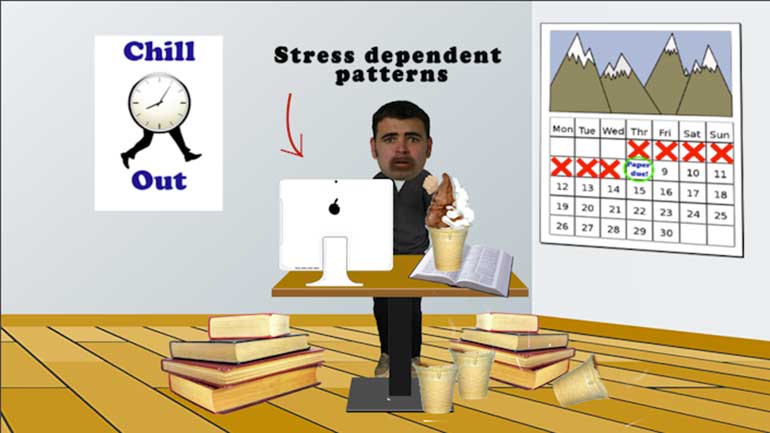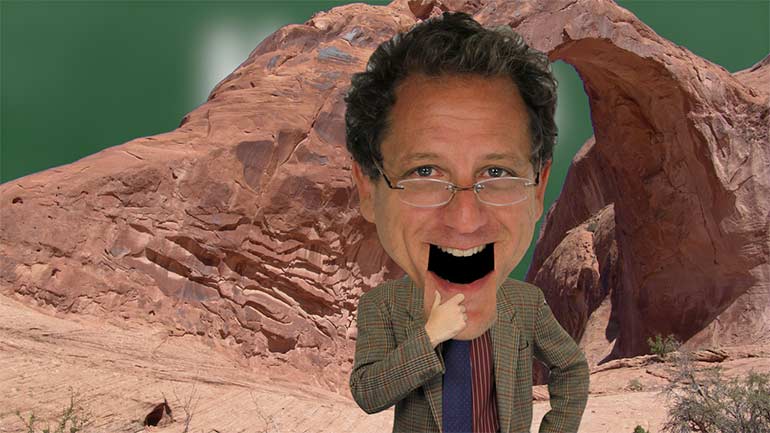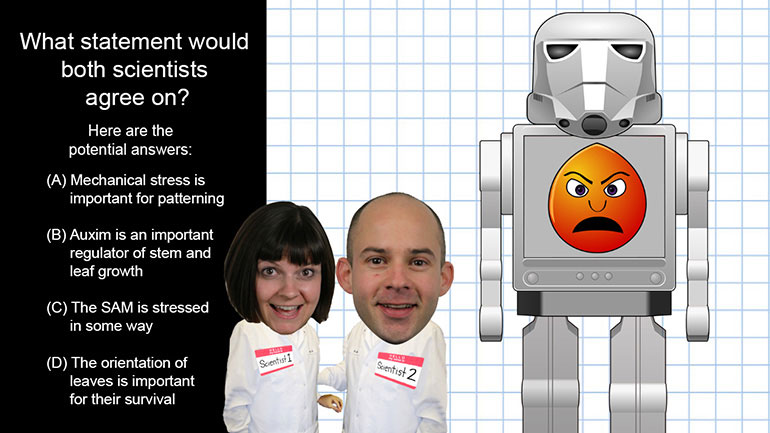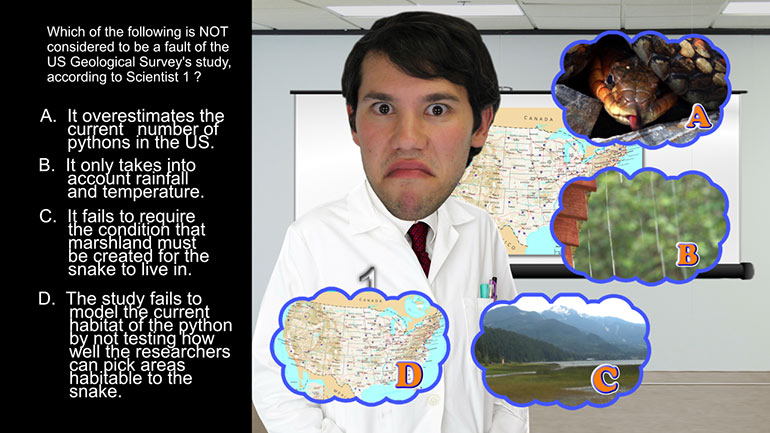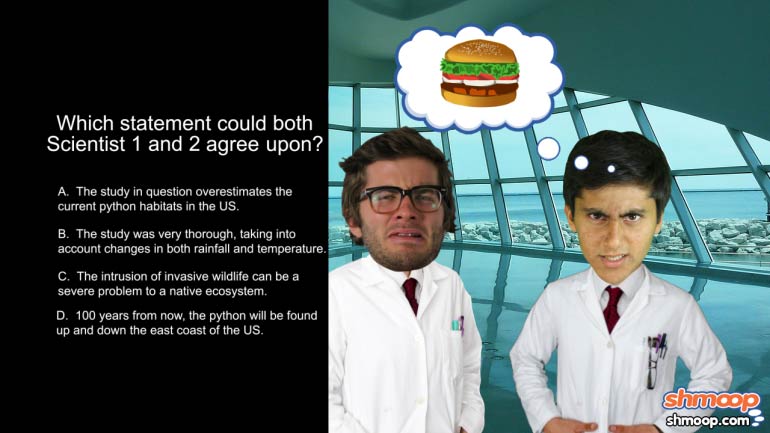ShmoopTube
Where Monty Python meets your 10th grade teacher.
Search Thousands of Shmoop Videos
ACT Science Videos 67 videos
ACT Science: Research Summary Passage Drill 2, Problem 1. Why do you think that the filter paper will not remove the salt from the water?
ACT Science: Data Representation Passage Drill 1, Problem 1. What do the statistics in Figure 1 suggest?
ACT Science: Data Representation Passage Drill 1, Problem 2. Which of the following is a variable in Figure 1, but not in Figure 2?
The Carbon 14 Years 207 Views
Share It!
Description:
ACT Science: Data Representation Passage Drill 3, Problem 3. Which of the following is the reason why an individual born in 1963 has a higher 14 C content than someone born in 1945?
Transcript
- 00:04
Here’s your shmoop du jour, brought to you by 1-800-CONTACTS.
- 00:07
The protein-enhanced brand of contact love.
- 00:27
Which of the following is the reason why an individual born in 1963 has a higher 14C content
- 00:32
than someone born in 1945?
- 00:35
And here are the potential answers...
Full Transcript
- 00:41
Well, lucky for you, there’s no need to interpret any graphs to get the right answer on this one.
- 00:45
We’re looking for the reason and individual could have higher carbon-14 content.
- 00:49
We know, the JFK presidency answer looks tempting.
- 00:55
But all we really need to do is read the passage carefully to find the answer.
- 00:59
To be more specific, there’s actually one line in the entire passage
- 01:03
that pretty much gives you the answer to this one.
- 01:05
Have you found it yet? OK, we’ll read it for you.
- 01:09
It’s the line that reads,
- 01:11
“Nuclear bomb tests during 1955-63 produced large amounts of 14C...”.
- 01:19
The answer lies within that one sentence.
- 01:22
Nuclear bomb testing didn’t start till 1955,
- 01:26
so how could people born before then have more 14C than people born after?
- 01:30
They couldn’t.
- 01:31
Which means, our answer is (B).
- 01:33
And if you chose answers C) or D),
- 01:35
we just want to let you know that we, here at Shmoop, don’t support ageism.
Related Videos
ACT Science: Data Representation Passage Drill 1, Problem 1. What do the statistics in Figure 1 suggest?
ACT Science: Data Representation Passage Drill 1, Problem 2. Which of the following is a variable in Figure 1, but not in Figure 2?
ACT Science Data Representation Passage: Drill 3, Problem 5. According to Figure 2, what birth date will be predicted for an individual actual...
ACT Science: Research Summary Passage Drill 2, Problem 1. Why do you think that the filter paper will not remove the salt from the water?
ACT Science: Conflicting Viewpoint Passage Drill 1, Problem 1. What statement would both scientists agree upon?
